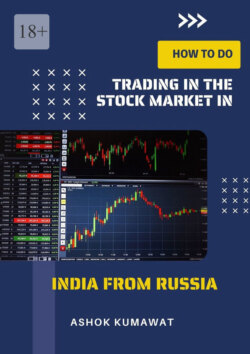Читать книгу How to Do Trading in the Stock Market in India from Russia - Ashok Kumawat - Страница 4
На сайте Литреса книга снята с продажи.
Chapter 2: Understanding the Indian Regulatory Framework
ОглавлениеThe Indian stock market operates under a robust regulatory framework that ensures investor protection, market integrity, and fair practices. As an international trader looking to trade in the Indian stock market from Russia, it is crucial to have a comprehensive understanding of the regulatory landscape to navigate the market effectively and comply with the relevant rules and regulations.
2.1 Securities and Exchange Board of India (SEBI)
The Securities and Exchange Board of India (SEBI) is the primary regulatory body governing the Indian securities market. Established in 1988, SEBI is entrusted with the responsibility of regulating and overseeing various market participants, including stock exchanges, brokers, intermediaries, and listed companies. SEBI’s main objective is to create a transparent, efficient, and investor-friendly market ecosystem.
2.2 SEBI Regulations and Guidelines
SEBI formulates regulations and guidelines that govern different aspects of the Indian stock market. These regulations cover areas such as listing requirements for companies, disclosure norms, corporate governance standards, insider trading prevention, and market surveillance. It is imperative for traders to familiarize themselves with these regulations to ensure compliance and avoid any legal or regulatory complications.
2.3 Foreign Portfolio Investment (FPI) Regulations
Foreign investors, including those from Russia, fall under the category of Foreign Portfolio Investors (FPIs) in the Indian stock market. SEBI has established a regulatory framework for FPIs, which includes registration, investment limits, compliance requirements, and reporting obligations. Understanding the FPI regulations is crucial for international traders to invest and trade in Indian securities.
2.4 Know Your Customer (KYC) Requirements
KYC norms play a pivotal role in ensuring transparency and preventing money laundering in the Indian stock market. As part of the KYC process, traders are required to provide their identification and address proof documents, as well as complete the necessary forms for opening a trading and demat account. Complying with KYC requirements is mandatory for participating in the Indian stock market.
2.5 Trading and Clearing Mechanism
SEBI oversees the trading and clearing mechanisms in the Indian stock market to maintain fair and efficient trading practices. Trading takes place through stock exchanges, where buyers and sellers meet to execute trades. Clearing corporations ensure the settlement of trades by acting as intermediaries between buyers and sellers, thereby minimizing counterparty risk.
2.6 Investor Protection Measures
SEBI is committed to safeguarding investor interests in the Indian stock market. It enforces stringent regulations to prevent fraudulent activities, market manipulation, and insider trading. SEBI also promotes investor education and awareness through various initiatives, empowering investors to make informed decisions. Understanding the investor protection measures provided by SEBI is crucial for traders to navigate the market safely.
2.7 Market Surveillance and Enforcement
SEBI employs robust surveillance mechanisms to detect market anomalies, price manipulations, and insider trading activities. It uses sophisticated systems and tools to monitor trading patterns, volumes, and price movements in real-time. In cases of non-compliance, SEBI has the authority to impose penalties, initiate legal proceedings, and take necessary enforcement actions.
2.8 Regulatory Changes and Updates
The Indian regulatory framework is dynamic and subject to periodic changes to adapt to evolving market conditions and global best practices. Traders need to stay updated with the latest regulatory changes, circulars, and notifications issued by SEBI. Regularly checking SEBI’s website, subscribing to market news updates, and staying connected with authorized intermediaries will ensure that traders are well-informed about regulatory developments.
2.9 Seeking Professional Advice and Assistance
Navigating the Indian regulatory framework can be complex, especially for international traders. Seeking professional advice from authorized intermediaries, including stockbrokers, legal advisors, and compliance experts, can provide valuable guidance and ensure adherence to the regulatory requirements. These professionals can assist traders in understanding the regulatory landscape and help in smooth and compliant trading operations.
In conclusion, understanding the Indian regulatory framework is essential for international traders looking to trade in the Indian stock market from Russia. SEBI’s regulations and guidelines, foreign investment norms, KYC requirements, trading and clearing mechanisms, investor protection measures, market surveillance, and regulatory updates form the bedrock of a transparent and fair market. Adhering to the regulatory framework not only ensures compliance but also instills confidence and trust in the Indian stock market. In the subsequent chapters, we will explore further aspects of trading in the Indian stock market, equipping you with the knowledge and tools necessary for successful trading from Russia.
